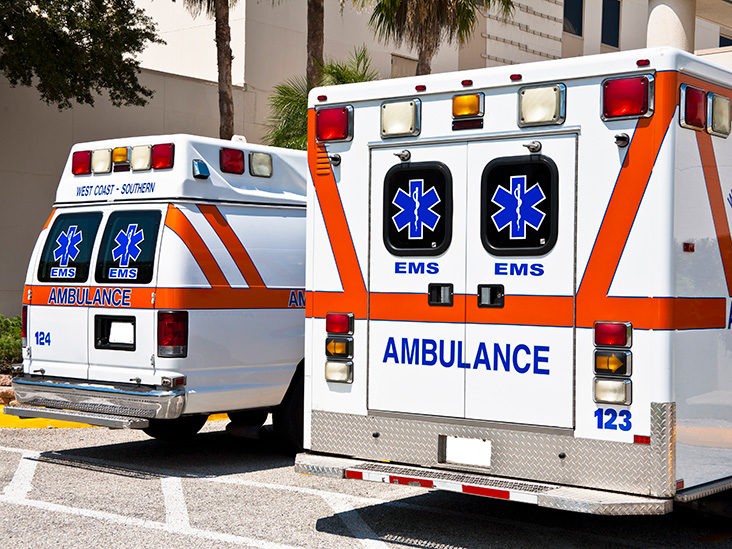

Home / Blog / Medicare Insurance / Will Medicare Cover An Ambulance Service Fee?

It’s hard to imagine, but it happens every day. You fall, seriously injure yourself and need to call an ambulance to take you to the hospital. You can’t drive your car and you are alone, so it makes sense right?
Unfortunately, you may get stuck with a hefty bill for this decision. Believe it or not, if you can take a taxi to the hospital and the trip poses just as much of a risk to your health as a ride in an ambulance, Medicare will not cover the ambulance fee.
Luckily, you will know this up front. Legally, the company providing transportation must produce an Advance Beneficiary Notice of Noncoverage (ABN) which you need to sign before they will even load you in. In some cases, ambulance companies will charge you an up-front fee for their service! Meanwhile you are rigid with agony, and trying to arrange alternative transportation.
Free Medicare Insurance Comparison - Save up to 30%
No junk mail. No spam calls. Free quotes.
No Signup required
Basically, if traveling in anything other than an ambulance will endanger your health, you will be covered. You have to have an emergency that requires timely medical care at a Medicare-approved facility, such as a hospital, critical access hospital, or skilled nursing facility (SNF).
These emergency situations could include bleeding, being in respiratory distress, or any condition that means if you took an alternative mode of transportation, your life would be in danger.
If your situation is not an emergency, you could be covered by Medicare if:
Your physician has written an order stating that ambulance transportation is necessary
AND
You must also be confined to a bed (i.e. unable to walk or sit in a wheelchair)
OR
You need medical services during your trip that is only available in an ambulance, such as monitoring, or the delivery of fluid/medication through an IV.
It is possible that Medicare would cover transport if you have end-stage renal disease (ESRD). ESRD is permanent kidney failure: Ambulance transportation to or from a dialysis facility is usually covered.
Some people think that if they don’t have a car and they break their leg, then Medicare will certainly see the need for transportation. Again, if you could call a taxi service, Medicare will not cover the cost, even if you are in extreme pain.
In addition, it’s important to remember that you still need to cost-share the trip: Medicare will only cover 80 percent of its approved amount of that service, and you’ll be responsible for a 20-percent coinsurance once your Part B deductible for the year is met. you still need to pay your cost-sharing portion. In 2021, this amount is $203.
Not all ambulance service providers are Medicare participating providers. It is important to double check this, if you are conscious and coherent. That could be a shock, to learn that even an emergency trip is not covered by Medicare Part B.
Also, remember that mistakes happen all the time when adrenaline is running high: your ambulance service provider could neglect to accurately explain your reason for needing an ambulance. This could result in your Medicare Summary Notice (MSN) indicating that your bill wasn’t paid. If this happens, don’t worry: you can appeal. Your MSN will provide instructions for how to start the appeal process, and you may need to involve your doctor.
In some cases, the ambulance company might have simply filed the incorrect paperwork, and they can refile to correct the mistake.
Free Medicare Insurance Comparison - Save up to 30%
No junk mail. No spam calls. Free quotes.
No Signup required
Ambulance trips to a hospital can be thousands of dollars if the distance is quite far, especially if air transportation is required. On average, the 20% of the fee that you are responsible for according to Medicare Part B is in the $300-400 range. Since the MSN might return with a denial of payment for the rest of the amount, many would not call an ambulance at all. A recent study revealed that 50% of Americans would have to borrow money to pay an unexpected bill of $1500.
The takeaway is clear: if at all possible, call a friend or a taxi to take you to the hospital if you are among the vast majority of us who worry about money, co-pays, and making ends meet.
Lauren Lewthwaite Lauren Lewthwaite has been freelance writing for almost five years writing content that ranges from health to insurance and everything in between. Lauren is also a trained translator in French and English and is a dog-mom to an adorable Australian Shepherd.